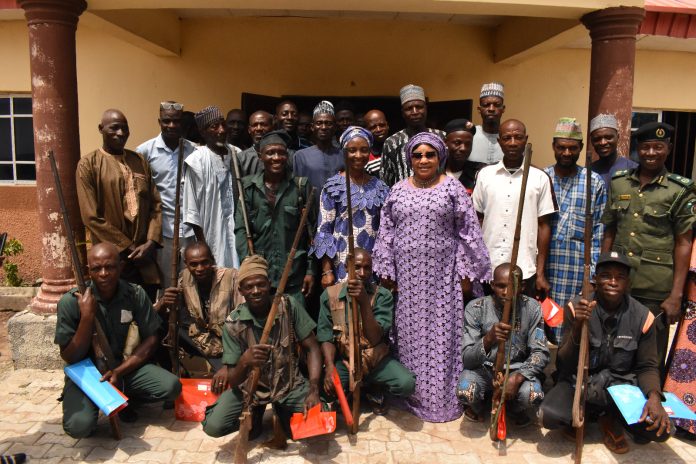The Mandate Secretary for the Agriculture and Rural Development Secretariat, Lawan Kolo Geidam, has called on youths in the Federal Capital Territory (FCT) to explore and utilize the vast potential of forest resources for economic ventures.
This appeal was made during a sensitization campaign organized for youths and stakeholders involved in forest and wildlife exploration activities in the FCT.
Represented by Permanent Secretary Grace Adayilo, Geidam emphasized the critical role of biodiversity in maintaining ecosystem health and the need for responsible utilization of natural resources.
He encouraged the youth to tap into forest wealth for sustainable livelihoods and economic growth.
“The FCT Administration is committed to promoting initiatives that protect endangered wildlife species through sensitization, training, and empowering youth in economically viable ventures such as honey production,” he stated.
Geidam outlined the FCT’s dedication to global action against practices that endanger wildlife species, highlighting eco-tourism, sustainable timber harvesting, non-timber forest products, and carbon offset programs as key strategies.
“These initiatives not only secure the future of our youths but also contribute to the conservation of biodiversity and ecosystems,” he added.
During the interactive session, Grace Adayilo stressed the importance of collaborating with relevant agencies to address security threats in forests, making them conducive to productive activities.
She also noted the FCT’s commitment to the National Strategy to Combat Wildlife and Forest Crime in Nigeria 2022–2026, emphasizing increased awareness and stringent penalties for illegal wildlife trade.
Recognizing the vulnerability of local hunters to engage in wildlife crime, Geidam urged them to take advantage of the FCT Administration’s initiatives in lucrative bee production and other alternative livelihood opportunities. “We are working to provide sustainable and legal economic opportunities to deter involvement in wildlife crime,” he said.
Mrs. Caroline Opara, the Director of Forestry in the FCT, underscored the critical importance of the National Strategy during her welcome address. She advocated for awareness campaigns against the poaching and selling of endangered species in the FCT.
“The Endangered Species Act of 2016, which stipulates stringent penalties for wildlife-related crimes, is a crucial tool in safeguarding dwindling populations of wild animals and preserving biodiversity,” Opara noted.
She emphasized that endangered species, when pushed to the brink of extinction by human activities, play irreplaceable roles in maintaining ecosystem balance. “The continuous killing of these species not only reduces their populations but also has far-reaching negative impacts on biodiversity and ecosystem health. For example, the pangolin, known for its voracious insect-eating habits, plays a vital role in regulating insect pest populations, thereby benefiting agricultural productivity.”
Opara encouraged participants to take the event seriously to learn how to engage in responsible forest exploitation. The event, which focused on sensitization against illegal poaching and trafficking of wildlife species and capacity building on honey production, included participants from the FCT Bee Farmers Association, hunters, and youth groups from the six Area Councils of the FCT.

